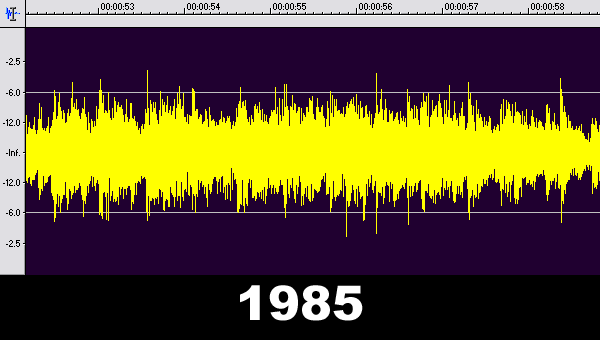I wonder why most of the CDs released these days are lacking dynamic range. 9 out of every 10 CDs I bought have poor DR and it is really disappointing to say the least. Music is good but recording is anywhere between poor to pathetic to ridiculous. They sound clearly is compressed and I could visualise the music being squashed through a narrow tube damaging their body. This observation is stronger in ICE systems in which even at low levels, some CDs are un-enjoyable. Today as I stepped into my car, I popped in a CD and set the volume set at 25 on my HU. After a few seconds, it turned it down to 22 because it sounded compressed. It didnt sound alright still, so it was reduced to 20 and then 18, 16 and finally 14. Now I can barely hear the whole music. I am sure many of you might have experienced the same.
I don't understand the objective of increasing the loudness in the media only to butcher the airiness and clarity of music. I believe none of us go maximum on volumes in our audio system and we have enough headroom to pump it up to desired levels if we get into a mood. I wonder if they boost the levels because the max. loudness on ipod is tolerable or because it is more suitable for broadcasting? It is all the more perplexing if we believe we have a better technology today. I think the recording labels and their mastering engineers are equally responsible for the decline in CD sales.
With balanced connection having a boost already, I am really annoyed by the loudness levels in many CDs. At a time when I started expanding my CD collection, this is really putting me on back-foot.
A very apt quote I came across recently:
I don't understand the objective of increasing the loudness in the media only to butcher the airiness and clarity of music. I believe none of us go maximum on volumes in our audio system and we have enough headroom to pump it up to desired levels if we get into a mood. I wonder if they boost the levels because the max. loudness on ipod is tolerable or because it is more suitable for broadcasting? It is all the more perplexing if we believe we have a better technology today. I think the recording labels and their mastering engineers are equally responsible for the decline in CD sales.
With balanced connection having a boost already, I am really annoyed by the loudness levels in many CDs. At a time when I started expanding my CD collection, this is really putting me on back-foot.
A very apt quote I came across recently:
There's one question that artists, producers, and record labels should ask themselves before they even hit the record button. Is it better to produce music that listeners will want to turn up, or produce music that listeners will want to turn down?


